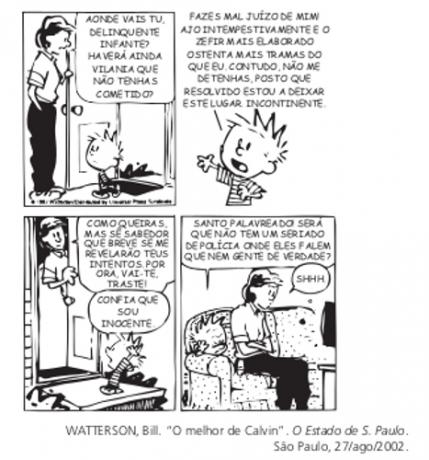THE conjunctionit is used as a connective (connecting element) between sentences or words with the same syntactic function. It is an invariable grammatical class, that is, it does not inflect (it does not change), classifying itselfin coordinative and subordinate.
Conjunctions are not chosen randomly. Between them and words, or even prayers, there is a relationship of meaning. It is possible that there are several conjunctions that establish the same meaning, for example, those that indicate opposition (but, however, however, however, etc.), but it may also be that the same conjunction exerts meanings many different. THE subordinate conjunction “like” is an example, as it can establish different meaning effects and present itself in three subordinate clauses.
See below:
Causal:
- Introduces the causal subordinate clause;
- It can be replaced by another causal conjunction - "why".
comparative:
- Introduces the comparative subordinate clause;
- Can be replaced by "as".
conformative:
- Introduces conformative subordinate clause;
- In its place, you can put the conjunction "according".
See some examples:
- Like woke up late, arrived late for work.
- Julia studies a lot like me.
- Like has been determined, there will be no duty.
Note that in all the examples the conjunction likepops up. There are no graphic differences in the highlighted word. However, this conjunction produces different meaning effects and therefore receives different classifications.
Below, some tips will be given to help you in classifying the subordinate conjunction like. Read with attention!
1º If the subordinate clause is introduced by the conjunction "as", that is, if it appears before the main clause, as in examples I and III, there will be two possibilities: either it will establish an idea of cause or of conformity (wake up). So, it is necessary to analyze the meaning effect, that is, the idea established in that context.
2º If the subordinate clause comes in its usual position, that is, after the main clause, the idea will be one of comparison.
From now on, before classifying the subordinate clauses, in which the subordinate conjunction "like” appears, stop and reflect. Use the notes, you'll find them very helpful.
By Mayra Pavan
Graduated in Letters


